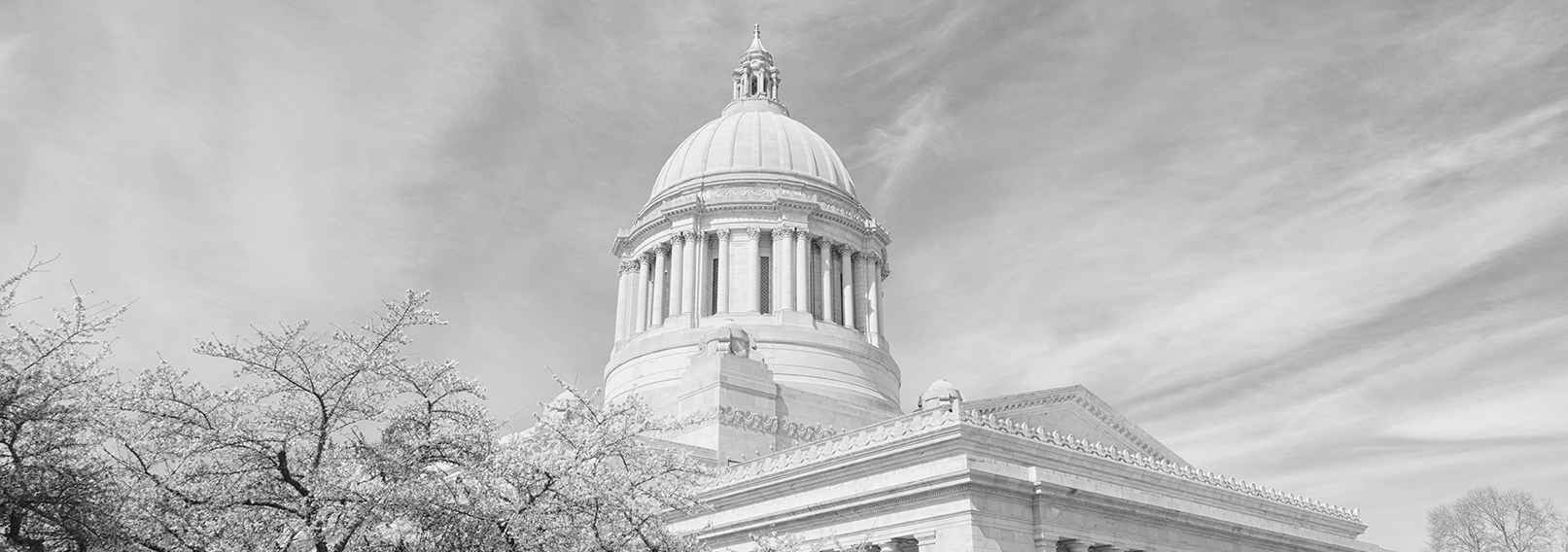Week 3 in Review
HB 1918 Update: Requiring the Transition to Zero-Emission Outdoor Power Equipment
The bill was passed out of committee this week with amendments. Unfortunately, while the changes did remove the added tax on gas-powered equipment and expanded the exemption language for certain entities, it still in large part mandates that counties transition their equipment by January 1, 2025. The new section regarding exemptions now reads:
“This requirement does not apply to outdoor power equipment used for emergency response activities, to natural resource work conducted on forestland as defined in RCW 76.04.005, in agricultural settings, or in remote settings that routinely and reasonably can be accessed only by water vessel. For purposes of this section, “emergency response activity” means any activity by public safety personnel, including first responders, to mitigate the impact of an incident on human life, property, or natural resources. “Emergency response activity” also includes extended response incidents and training of emergency response personnel.”
While we understand the intent behind this legislation, we continue to have significant concerns about the overall impact on our daily operations. Counties are required to maintain public buildings, parks, and the right-of-way using outdoor power equipment. They must also have reliable equipment capable of responding to disasters, emergencies, and severe weather events when they occur. Counties are concerned that the deadline in this bill to transition our gas-powered equipment remains too aggressive, potentially jeopardizing counties’ ability to get the job done and respond when necessary.
We are working hard to make sure that committee members understand our position and concerns with this legislation
HB 1722 Update: Microtrenching Mandate
This bill had a hearing in the House Committee on Local Government this week and is now scheduled for executive session next week on Wednesday. The bill requires that counties allow franchisees to use microtrenching to install broadband fiber in the county right-of-way unless we object with written findings. Our position is that the legislation attempts to achieve short-term gains in broadband access, by preempting local standards, policies, and codes. Specifically, we believe it mandates the use of a potentially substandard utility installation practice in the county right-of-way. While this may save private utilities installation costs, it will shift the financial burden to local governments and taxpayers.
We are working hard to make sure that committee members understand our position and concerns with this legislation.
HB 1996: Transferring County Stormwater Utility Revenues to Diking, Drainage, and Sewerage Improvement Districts
HB 1996 and companion SB 5742 were both heard this week. HB 1996 is scheduled for executive session in the House Committee on Local Government next Tuesday.
We have significant concerns with the potential consequences this legislation could have on Phase I and Phase II NPDES counties that utilize a Stormwater Management Utility.
While there are many different mechanisms for funding the implementation of Stormwater Management Programs, the most common for counties, is the creation of a stormwater utility district, and the collection of fees under RCW 36.89.
This bill would require all stormwater revenue collected by the county on parcels within the boundaries of a Diking, Drainage, or Sewerage District, to be transferred back to those districts. It goes further, saying a district may retroactively collect seven years of revenues from the county. This would require us to back pay and collect stormwater management fees for special purpose districts that don’t have the capacity nor requirement to comply with the NPDES permits those fees were adopted for.
Another concern we have with the bill is that it says, no county shall construct or improve any stormwater control facility within the limits of a district, except with the consent of that district. This requirement could create significant problems for counties in cases where we can’t reach an agreement. This impasse would potentially inhibit our ability to complete projects and stay in compliance with our permit.
We are working hard to make sure that committee members understand our position and concerns with this legislation
Week 4, What to Watch For:
HB 2026: Implementing a per-mile charge on vehicles
HB 2026 is scheduled for a public hearing next week on Thursday in the House Committee on Transportation at 1:30. The hearing will follow a work session titled: Road usage charge development work: An update.



